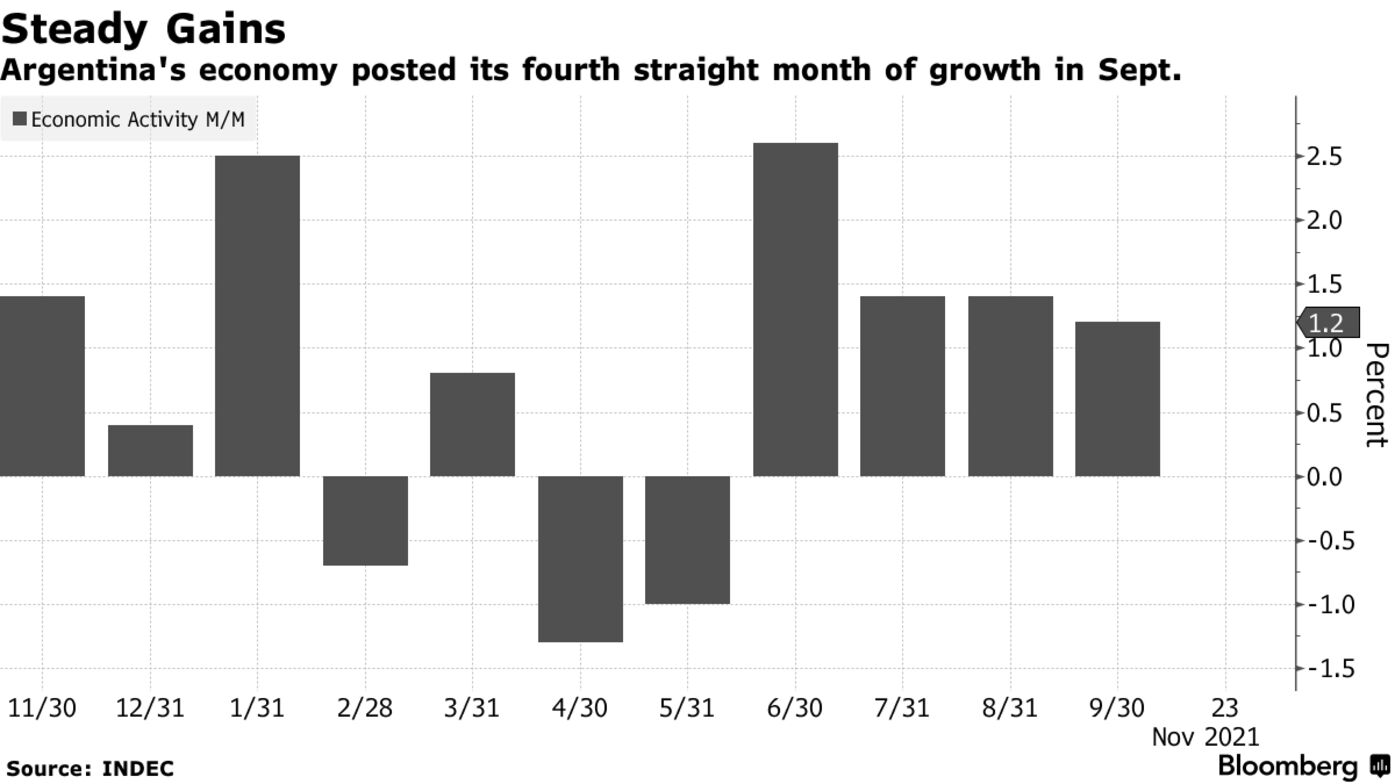Economics
Argentine Economy Beats Forecast Despite Political Woes
By- Economic activity rose 1.2% m/m in September; 11.6% y/y
- Month marked by political volatility following primary vote
Argentina’s economy expanded more than expected in September as tourism, manufacturing and construction picked up, offsetting political volatility that followed the government’s defeat in primary elections.
Economic activity rose 1.2% from the previous month, double the median estimate of economists in a Bloomberg survey. From a year ago, growth slowed to 11.6%, according to government data published Tuesday.
The government’s loss in the Sept. 12 primary vote sparked political uncertainty that is hurting business confidence as President Alberto Fernandez resorts to additional unorthodox economic measures, including price freezes, to rein in inflation. The government lost the final midterm vote on Nov. 14 by a narrower margin.
Read More: Argentina’s Coalition Loses Senate Majority After Vote
Economic Reopening
The sector of hotels and restaurants jumped 59% in September from a year ago as the economy gradually reopens and the pace of vaccinations improve. Construction expanded 27%, while manufacturing and mining grew 11% and 16%, respectively. It was the fourth straight month that overall activity expanded.
“The recovery of activity in June-Sept reflects a combination of low base effects and the improving Covid mobility backdrop,” Goldman Sachs Group Inc. economist Alberto Ramos wrote in a note.
Economists surveyed by the central bank in October forecast Argentina to grow 8.3% in 2021 following a three-year recession. After Tuesday’s numbers were published, however, Economy Minister Martin Guzman said the government is revising up its growth estimate for this year to nearly 10%.
Argentina’s outlook also hinges on the government’s success in negotiating a new program with the International Monetary Fund.


Keine Kommentare:
Kommentar veröffentlichen